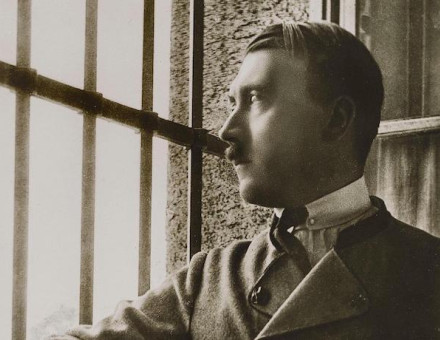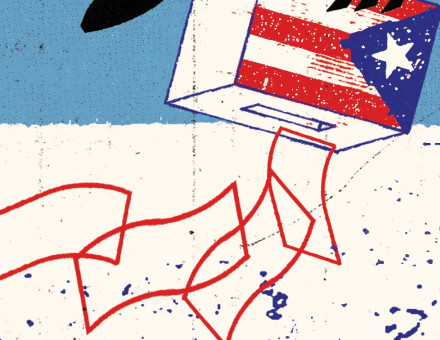‘One Fine Day’ and ‘Imperial Island’ review
One Fine Day: Britain’s Empire on the Brink by Matthew Parker and Imperial Island: A History of Empire in Modern Britain by Charlotte Lydia Riley are filled with ambition.

Nobody writes small books about the British Empire any more. Whether defending or deriding Britain’s long history of colonialism, the vogue is for holistic accounts, from beginning to end, usually in pursuit of a moral reckoning of what it was all about. In different ways, these two volumes continue this trend. Matthew Parker’s One Fine Day navigates the girth of Britain’s empire over 24 hours in 1923; Charlotte Lydia Riley’s Imperial Island offers a history of Britain since 1939 with the empire at the centre. Both books are full of ambition. Parker describes his as ‘a new way of looking at empire’. Riley pledges to foreground ordinary people’s experiences. Do either live up to their promises?
Of the two, Parker’s perspective is the more novel. Investigating historical phenomena by focusing on a single day has worked well for other episodes such as the French Revolution, although usually it demands a micro-historical approach. Instead, Parker goes for geographical breadth, starting his survey in the Pacific and taking the reader around the British world from Canada to west Africa, India to New Zealand, as well as back and forth to the metropole. According to Parker, the ‘fine’ day – 29 September 1923 – marked the zenith of Britain’s global domain, heralded with the Mandate for Palestine declared by Arthur Balfour. It was also on 29 September that leaders of the British dominions arrived in London for the start of the Imperial Economic Conference which began two days later. By stretching his timeline a couple of months in both directions, Parker is able to point to the simultaneity of a series of events across the Empire that point to a watershed in the ability of the British to keep it all together. Parker singles out the growing strength of Indian nationalism, the emergence of nationalist parties in southern Nigeria, humanitarian concerns about the fate of indigenous peoples across the Pacific, and the opening of locally managed schools and hospitals in west Africa. Other occurrences such as the Yokohama earthquake at the beginning of September are used to point to Britain’s imperial naval presence and the threat posed by Japan.
Ultimately, however, Parker’s choice of a single day turns out to be a sleight of hand. E.M. Forster’s A Passage to India is thrown into the story, although it was not published until 1924. Likewise, George Orwell’s time in Burma is discussed, although it all happened later. The Prince of Wales’ tour of India and the Far East, which actually took place in 1921 and 1922, is used as a commentary on Britain’s eastern empire in 1923. Most confusingly of all, the Amritsar massacre of 1919 is written about as though it happened four years later. Poor timekeeping like this makes for a rather disjointed account. And anyway, was the British Empire really ‘on the brink’ in 1923, or even in 1922 or 1924? Parker concludes that for many of the postwar imperial administrators it felt like the end of the line. Maybe for some. But by the time of the next Imperial Conference in London in 1926, there was another Balfour Declaration, one which planted the seeds of the Commonwealth, surely empire by another name.
Imperial Island is a more sure-footed history of Britain and its empire. The familiar national story from the people’s war of 1939-45 through to Brexit in 2016 and beyond is retold with the legacies of colonialism and racism front and centre. Other scholars have pioneered this approach, notably Paul Gilroy (whose mother Beryl features in Imperial Island) in his seminal There Ain’t No Black in the Union Jack (1987). However, few have pursued the theme with as much gusto as Riley. Starting with the Second World War, she argues that neither Britain’s ‘finest hour’ nor the new welfare state that followed could have been achieved without the contributions of the Commonwealth. She restores the politics of race to the social history of the so-called era of ‘consensus’ from the 1950s to the 1980s. A key argument here is how the ‘winds of change’ of decolonisation unleashed not only a right-wing backlash against immigration, fuelled by Enoch Powell and culminating in the death of Blair Peach at an Anti-Nazi League rally in 1979, but also led to a revival of liberal humanitarianism, from the launch of VSO (Voluntary Service Overseas) in 1958 through to Live Aid in 1985. Once Riley reaches the era of Margaret Thatcher and New Labour the pace quickens but some of the verve is lost. Geopolitical developments such as the wars in the Falklands and Iraq, and the end of apartheid in South Africa, merge with events closer to home, examples of which include the publication of Salman Rushdie’s Satanic Verses, the murder of Stephen Lawrence, the introduction of ‘Life in the UK’ citizenship tests in 2002, the 2012 Olympics and much else. As the author scrolls through so many disparate news stories, it becomes harder to see how empire is the connecting thread. And the reader also loses sight of the ‘ordinary people’ whose experience of empire enlivens the earlier chapters. A multi-cultural history of ‘the British people’ ends up focused almost exclusively on London, and has nothing to say about the links between Wales, Scotland, Northern Ireland and empire. In trying to cover so much, Imperial Island inevitably lacks the depth demanded to make its case a compelling one.
Both books show the possibilities of writing about empire in post-Brexit Britain, but also the pitfalls that lie in wait when a complex story is reduced to a history of headlines.
- One Fine Day: Britain’s Empire on the Brink
Matthew Parker
Abacus, 608pp, £25
Buy from bookshop.org (affiliate link) - Imperial Island: A History of Empire in Modern Britain
Charlotte Lydia Riley
Bodley Head, 384pp, £25
Buy from bookshop.org (affiliate link)
Miles Taylor is Professor of British History and Society at Humboldt University of Berlin.






